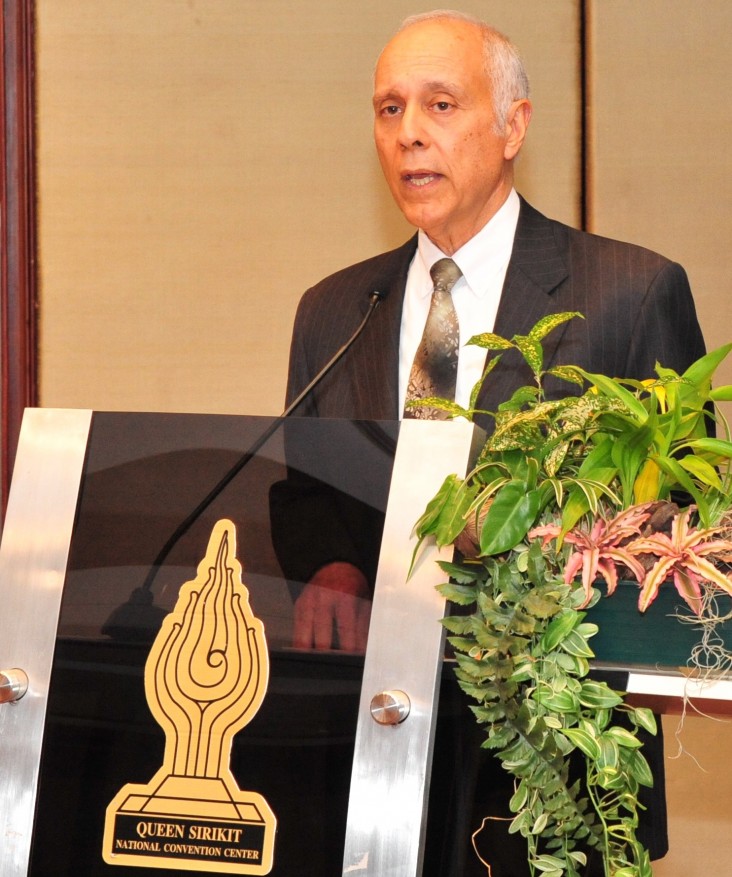
Good evening. I am very pleased to be here with you all today to launch Inform Asia, a health research program that will be implemented by our partners RTI International and the Thai Red Cross AIDS Research Centre. We know that learning and knowledge-sharing are powerful accelerators of successful development, and in that way this activity will play an important role in helping us to achieve better health policy - and better health conditions - for the people of the region.
This new program nicely captures key priorities for the U.S. Agency for International Development, in particular through its emphasis on investments in innovation; science and technology; rigorous evaluation and evidence-based decision making; and knowledge management.
These are critical to achieving stronger development outcomes, including to realizing more effective, efficient, and sustainable responses to public health threats across Asia. We need rigorous research to make informed decisions on how best to finance and expand these kinds of science-based activities.
The Health Research Program will promote the use of strategic, scientifically sound data in health programming and policy. It will focus on assessing the effectiveness of interventions, through operational research, and look into key issues or bottlenecks - from the social or behavioral, to economic or management - that can impede effective health program and policy implementation. It will support efforts to test new approaches to improve health programming, and to better identify the causal relationship between intervention, and impact.
And it will look for inclusive processes for leveraging resources and developing solutions, and identify value-added services that complement the efforts of other development partners.
For example, we now work closely with our Centers for Disease Control and Prevention (CDC) colleagues with the U.S. President's Emergency Plan for AIDS Relief funding to undertake operational research on HIV testing and treatment in Thailand, to help inform implementation of the “Test and Treat” policy. While CDC focuses on evaluating the feasibility of implementing this policy in health care facilities, USAID looks at this in community-based settings. Working together, we all can do more.
The new program will help build a regional cadre of experts with better knowledge of local partners and development contexts; improve the relevance, effectiveness and efficiency of health research; and strengthen the application of sound evidence to maximize the impact of resources available to governments and development partners in the region - including in USAID, both in our Regional Development Mission, and in other countries.
We are very pleased to be partnering with RTI International and the Thai Red Cross AIDS Research Centre on this important effort. They have a strong, proven track record in collaborating with research and academic institutions dedicated to health science. Their significant experience in navigating the complex operating environment, with established local connections in the region, will be key to the success of this program.
Both are fully conversant with current health policies and strategies for implementation, and both are at the forefront of thinking and practice in the region. We are especially fortunate to be able to take full advantage of Professor Praphan Phanuphak’s network of expert contacts, as well as foster strong collaboration between the Thai Red Cross AIDS Research Center and RTI, by having him as program co-director, along with Shanthi Noriega.
USAID’s Health Research Program will work with health researchers across Asia to help set research priorities; identify assets and gaps in resources; and support collaboration between researchers and policymakers. It will put forward sound evidence which can lead to better health outcomes and supportive health policy in Asia.
Inform Asia is already establishing collaboration across the region, including government sectors, non-governmental organizations, academic institutions, private sectors and international development partners.
USAID is excited to be a part of this program, and we wish it great success in delivering quality health research, informing health policy, and strengthening research capacity in the region.
And I am delighted to share the role of providing introductory remarks with Dr. Sopon, the Director General of the Department of Disease Control, Thai Ministry of Public Health.







Comment
Make a general inquiry or suggest an improvement.